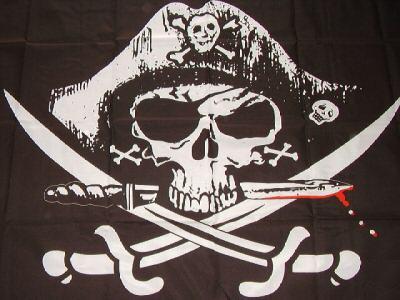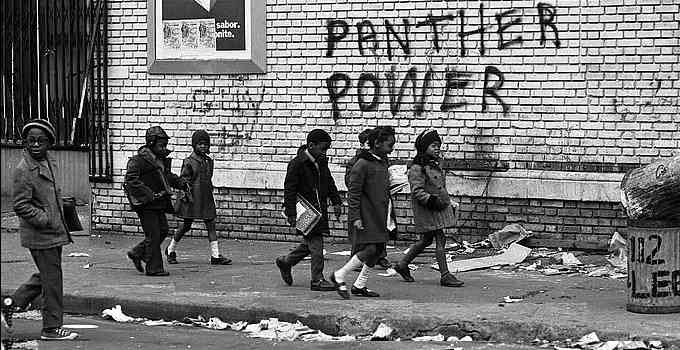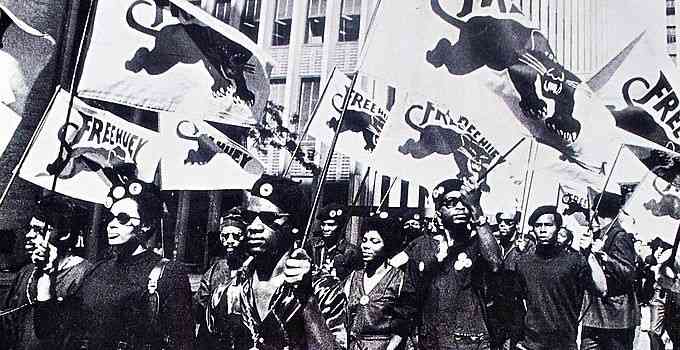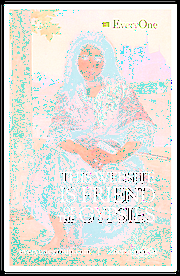b(l)ack panthers
all power to the people


Prophecy (1964)
(To Jean-Paul Sartre who told me the story of Ali Blue-Eyes)
There came into the world a son
and one day he went to Calabria:
it was summer, and the new
hovels which resmbled
sugarbread hives were
empy. As in fairy-tales the color
of hunger. Empty.
Like pigsties with on pigs, in the middle of gardens with no vegetables,
of fields without earth, alongside dry banks. Tilled by the moon, the
fields. The weeds had grown through mouths of skeletons. The Ionian wind
beat the blackened hay
as in prophetic dreams:
and the famine-colored moon
tilled fields that no summer
had ever loved.
And it was in the time
of the son that such love
might be born, but it was not
to be. The son had eyes
of burnt hay, fearless eyes,
that saw all that was evil: nothing
knew he of agriculture,
of land reform, of trade union
struggles, of National Aid Programs,
but - he had those eyes.
(.....................)
Each drank peasant,
every one had abandoned
his new hovel
like a pigsty with no pigs,
in clearings the color of hunger
at the foot of rotund hills
within view of the prophetic Ionian Sea.
Three millennia passed
not three centuries, not three years, and in the malarial air one felt once
again presentience of Greek colonists. Ah, how much longer, loborer of Milan,
will you struggle just for salary ? Don’t you see how these people venerate
you?
Almost like a Master.
They would bring to you,
from their ancient regions,
fruits, cured meats, their
occult fetishes, and laid them
with solemn ritual
between refrigerator and television set
in your twentieth-century bachelorette,
attracted by your divinity.
You, of the state commission,
of C.G.I.L, you divine ally
of C.G.I.L, you divine ally
in the safe sun of the North.
In the Land of racial
diversity, the moon cultivates
a field thet you have uselessly
provided for them.
Of Burden, the moon
Is mistress of souls that you
pointlessly modernized. Ah, but the son knows: the grace of
knowledge is a
wind which changes course, in heaven. It now blows
perhaps from Africa and
you should listen to what by grace the son knows. If he then
does not smile,
it is because hope for him
was not light but rationality.
And the light of the sentiment
of Africa, that suddenly sweeps
across the Calabrias, be it a sign
without meaning, relevant
in future times! Hence:
you shall put an end to your struggle
for mere salary and armor
the hand of the Calabrians.
Ali Blue-Eyes
one of many sons of sons,
will plow from Algiers
on ships with sails and oars.
There will be with him thousands,
like their fathers, tiny-bodied men
with eyes of wretched dogs
on boats launched in the Kingdoms of Hunger. With them will be the children,
and bread and cheese wrapped in the yellow foil of Easter Monday. With them
will be the grandmotheres and the donkeys, aboard the triremes stolen from
the colonial ports.
They will land at Crotone or at Palmi,
by the millions, clad in Asian
rags and American shirts.
At once the Calabrians will say
as though from one brigand to another:
"Here are our ancient brothers,
their children, and the bread and cheese!"
From Crotone or Palmi they will
sail on to Naples, and thence
to Barcelona, Salonika and Marseille,
the City of the Underworld.
Souls and angels, mice and lice,
carrying the seed of Ancient History
they will fly before the prophecy.
They always the humble
they always the weak
they always the timid
they always the tiny
they always the tiny
they always guilty
they always subjects
they always invisible
they who never wanted to know, they who had eyes only to implore, they who
lived like assassins underground, they who lived like bandits at the bottom
of the sea, they who lived the like the insane in the middle of the sky,
they who created their
laws outside the law,
they who adapted
to a world under the world,
they who believed
in a God servant of God,
they who sang
at the slaughter of kings,
they who danced
at the bourgeois wars,
they who prayed
at labor rallies...
...abandoning the honesty
of peasant religions,
forgetting the honor
of the underworld,
betraying the candor
of barbarian peoples,
behind their Alis
of the Blue Eyes - they will emerge from the underground to kill - they
will surface from the bottom of the sea to attack - they will swoop down
from the sky to steal - and before arriving in Paris
to teach the joy of living,
before arriving in London
to teach how to be free,
before arriving in New York,
to teach how to be brothers
- they will destroy Rome
and upon its ruins
they will sow the seed
of Ancient History.
Then with the Pope and all the sacraments
they will hasten like gypsies
to the north - west
with the red banners
of Trotsky in the wind...
Pier Paolo Pasolini (* 5.3.1922; 2.11.1975)
Poor people are gonna rise up
And get their share
Poor people are gonna rise up
And take what's theirs
.......
You are being lied to about pirates

Somali pirate ships are small, but the ships they seize are huge. They held one gigantic tanker for months until ransom was paid.
Who imagined that in 2009, the worlds governments would be declaring a new War on Pirates? As you read this, the British Royal Navy - backed by the ships of more than two dozen nations, from the U.S. to China - is sailing into Somalian waters to take on men we still picture as parrot-on-the-shoulder pantomime villains. They will soon be fighting Somalian ships and even chasing the pirates onto land, into one of the most broken countries on earth.
But behind the arrr-me-hearties oddness of this tale, there is an untold scandal. The people our governments are labeling as one of the great menaces of our times have an extraordinary story to tell - and some justice on their side.
Pirates have never been quite who we think they are. In the golden age of piracy - from 1650 to 1730 - the idea of the pirate as the senseless, savage thief that lingers today was created by the British government in a great propaganda heave. Many ordinary people believed it was false: Pirates were often rescued from the gallows by supportive crowds. Why? What did they see that we cant?
In his book Villains of All Nations, the historian Marcus Rediker pores through the evidence to find out. If you became a merchant or navy sailor then - plucked from the docks of Londons East End, young and hungry - you ended up in a floating wooden Hell. You worked all hours on a cramped, half-starved ship, and if you slacked off for a second, the all-powerful captain would whip you with the cat o nine tails. If you slacked consistently, you could be thrown overboard. And at the end of months or years of this, you were often cheated of your wages.
Pirates were the first people to rebel against this world. They mutinied against their tyrannical captains - and created a different way of working on the seas. Once they had a ship, the pirates elected their captains, and made all their decisions collectively. They shared their bounty out in what Rediker calls one of the most egalitarian plans for the disposition of resources to be found anywhere in the 18th century.
They even took in escaped African slaves and lived with them as equals. The pirates showed quite clearly - and subversively - that ships did not have to be run in the brutal and oppressive ways of the merchant service and the Royal navy. This is why they were popular, despite being unproductive thieves.
The words of one pirate from that lost age - a young British man called William Scott - should echo into this new age of piracy. Just before he was hanged in Charleston, South Carolina, he said: What I did was to keep me from perishing. I was forced to go a-pirating to live.
In 1991, the government of Somalia - in the Horn of Africa - collapsed. Its 9 million people have been teetering on starvation ever since - and many of the ugliest forces in the Western world have seen this as a great opportunity to steal the countrys food supply and dump our nuclear waste in their seas.
Yes: nuclear waste. As soon as the government was gone, mysterious European ships started appearing off the coast of Somalia, dumping vast barrels into the ocean. The coastal population began to sicken. At first they suffered strange rashes, nausea and malformed babies. Then, after the 2005 tsunami, hundreds of the dumped and leaking barrels washed up on shore. People began to suffer from radiation sickness, and more than 300 died.
Ahmedou Ould-Abdallah, the U.N. envoy to Somalia, tells me: Somebody is dumping nuclear material here. There is also lead and heavy metals such as cadmium and mercury - you name it. Much of it can be traced back to European hospitals and factories, who seem to be passing it on to the Italian mafia to dispose of cheaply. When I asked Ould-Abdallah what European governments were doing about it, he said with a sigh: Nothing. There has been no cleanup, no compensation and no prevention.
At the same time, other European ships have been looting Somalias seas of their greatest resource: seafood. We have destroyed our own fish stocks by over-exploitation - and now we have moved on to theirs. More than $300 million worth of tuna, shrimp, lobster and other sea life is being stolen every year by vast trawlers illegally sailing into Somalias unprotected seas.
The local fishermen have suddenly lost their livelihoods, and they are starving. Mohammed Hussein, a fisherman in the town of Marka 100km south of Mogadishu, told Reuters: If nothing is done, there soon wont be much fish left in our coastal waters.
This is the context in which the men we are calling pirates have emerged. Everyone agrees they were ordinary Somalian fishermen who at first took speedboats to try to dissuade the dumpers and trawlers, or at least wage a tax on them. They call themselves the Volunteer Coast Guard of Somalia - and its not hard to see why.
In a surreal telephone interview, one of the pirate leaders, Sugule Ali, said their motive was to stop illegal fishing and dumping in our waters We dont consider ourselves sea bandits. We consider sea bandits [to be] those who illegally fish and dump in our seas and dump waste in our seas and carry weapons in our seas. William Scott would understand those words.
No, this doesnt make hostage-taking justifiable, and yes, some are clearly just gangsters - especially those who have held up World Food Program supplies. But the pirates have the overwhelming support of the local population for a reason. The independent Somalian news site WardherNews conducted the best research we have into what ordinary Somalis are thinking - and it found 70 percent strongly supported the piracy as a form of national defense of the countrys territorial waters.
One of the pirate leaders, Sugule Ali, said their motive was to stop illegal fishing and dumping in our waters We dont consider ourselves sea bandits. We consider sea bandits [to be] those who illegally fish and dump in our seas and dump waste in our seas and carry weapons in our seas.
During the revolutionary war in America, George Washington and Americas founding fathers paid pirates to protect Americas territorial waters, because they had no navy or coast guard of their own. Most Americans supported them. Is this so different?
Did we expect starving Somalians to stand passively on their beaches, paddling in our nuclear waste, and watch us snatch their fish to eat in restaurants in London and Paris and Rome? We didnt act on those crimes - but when some of the fishermen responded by disrupting the transit corridor for 20 percent of the worlds oil supply, we begin to shriek about evil. If we really want to deal with piracy, we need to stop its root cause - our crimes - before we send in the gunboats to root out Somalias criminals.
The story of the 2009 war on piracy was best summarized by another pirate, who lived and died in the fourth century BC. He was captured and brought to Alexander the Great, who demanded to know what he meant by keeping possession of the sea. The pirate smiled and responded: What you mean by seizing the whole earth; but because I do it with a petty ship, I am called a robber, while you, who do it with a great fleet, are called emperor.
(by Johann Hari, www.johannhari.com)
Postscript: Some commentators seem bemused by the fact that both toxic dumping and the theft of fish are happening in the same place - wouldnt this make the fish contaminated? In fact, Somalias coastline is vast, stretching 3,300km (over 2,000 miles). Imagine how easy it would be - without any coast guard or army - to steal fish from Florida and dump nuclear waste on California, and you get the idea. These events are happening in different places but with the same horrible effect: death for the locals and stirred-up piracy. Theres no contradiction.
Sui pirati vi stanno ingannando
Chi immaginava che nel 2009, i governi del mondo avrebbero dichiarato una nuova Guerra ai Pirati? Mentre leggete questo, la Marina Reale Britannica - appoggiata dalle navi di più di due dozzine di paesi, dagli USA alla Cina - sta navigando nelle acque somale per combattere degli uomini che ancora raffiguriamo come furfanti della pantomima del pappagallo sulla spalla. Presto combatteranno le navi somale ed anche inseguiranno i pirati sulla terraferma, in uno dei più disintegrati paesi sulla terra.
Ma dietro le stranezze da linguaggio dei pirati di questa storia, vi è uno scandalo non rivelato. La gente che i nostri governi etichettano come "una delle grandi minacce dei nostri tempi" hanno una storia straordinaria da raccontare - e qualche buon diritto dalla loro parte.
I pirati non sono mai stati affatto quel che pensiamo siano. Durante l'"età d'oro della pirateria" - dal 1650 al 1730 - l'idea del pirata come rapinatore insensato e selvaggio che oggi persiste è stata creata dal governo britannico in un grande sforzo di propaganda. Molte persone comuni la ritenevano falsa: i pirati erano spesso liberati con la forza dalla forca da folle sostenitrici. Perché? Cosa potevano capire che noi non possiamo?
Nel suo libro "Furfanti di tutti i paesi", lo storico Marcus Rediker studia attentamente le testimonianze per scoprirlo. Se allora diventavi un mercante o un marinaio - strappato dalle banchine dell'East End di Londra, giovane ed affamato - finivi in un inferno di legno galleggiante. Lavoravi tutte le ore su una nave ristretta e mezza affamata e se rallentavi il ritmo per un secondo, l'onnipotente capitano ti avrebbe frustato con il gatto a nove code. Se ti rilassavi regolarmente, potevi essere gettato in mare. Ed alla fine di mesi o anni di questo, eri spesso truffato sui tuoi salari.
I pirati sono state le prime persone a ribellarsi contro questo mondo. Si sono ammutinati contro i loro tirannici capitani - e hanno creato un modo diverso di operare sui mari. Una volta che avevano una nave, i pirati eleggevano i loro capitani e prendevano tutte le loro decisioni collettivamente. Suddividevano le loro ricompense in ciò che Rediker chiama "uno dei progetti più egualitari per la disposizione delle risorse che si trovi in qualsiasi luogo nel 18° secolo".
Comprendevano persino schiavi africani fuggiti e vivevano con loro come pari. I pirati dimostravano "piuttosto chiaramente" - e sovversivamente - che le navi non dovevano essere dirette nella maniera brutale ed oppressiva della marina mercantile e della marina reale". E' per questo che erano popolari, nonostante fossero dei ladri improduttivi.
Le parole di un pirata dell'età perduta - un giovane britannico di nome William Scott - dovrebbero risonare in questa nuova età della pirateria. Giusto prima di essere impiccato a Charleston, Sud Carolina, disse: "Quello che ho fatto è stato di impedire a me stesso di perire. Sono stato costretto ad entrare nella pirateria per vivere".
Nel 1991, il governo della Somalia - nel Corno d'Africa - crollò. Da allora i suoi 9 milioni di abitanti barcollano nell'inedia - e molte delle forze più ignobili del mondo occidentale hanno visto questo come una grande opportunità per rubare la riserva alimentare del paese e per scaricare i nostri residui radioattivi nei loro mari.
Si: residui radioattivi. Appena il governo era finito, delle misteriose navi europee cominciarono ad apparire al largo delle coste della Somalia, a scaricare grandi serbatoi nell'oceano. La popolazione costiera ad ammalarsi. Al principio soffrivano di strane infiammazioni della pelle, nausea e bambini deformi. Quindi, dopo lo tsunami del 2005, centinaia dei barili scaricati e sgocciolanti si depositarono sulla spiaggia. La gente cominciò a soffrire di malattie causate dall'irradiamento e più di 300 morirono.
Ahmedou Ould-Abdallah, l'inviato dell'ONU in Somalia, mi racconta: "Qualcuno sta scaricando qui materiale nucleare. Vi sono anche piombo e metalli pesanti come cadmio e mercurio - dite voi". Molto di questo è rintracciabile agli ospedali ed alle fabbriche europee, che pare lo passino alla mafia italiana perché lo "sistemi" a buon prezzo. Quando ho chiesto a Ould-Abdallah cosa stessero facendo su questo i governi europei, ha affermato con un sospiro: "Nulla. Non vi sono state nessuna rimozione, nessun risarcimento e nessuna prevenzione".
Allo stesso tempo, altre navi europee depredano i mari della Somalia della loro maggiore risorsa: il pesce. Abbiamo distrutto le nostre riserve di pesce con il sovrasfruttamento - ed ora siamo passati alle loro. Oltre $300 milioni di valore di tonno, gamberetti, aragoste ed altri animali marini vengono rubati ogni anno da grandi pescherecci che assalgono illegalmente i non protetti mari della Somalia.
I pescatori locali hanno perduto improvvisamente i loro mezzi di sussistenza e stanno soffrendo la fame. Mohammed Hussein, un pescatore della città di Marka, 100 km a sud di Mogadiscio, ha raccontato alla Reuters: "Se non si fa niente, presto non vi sarà molto pesce rimasto nelle nostre acque costiere".
Questo è il contesto del quale sono emersi gli uomini che chiamiamo "pirati". Tutti concordano che erano dei comuni pescatori somali che al principio hanno preso i motoscafi per cercare di dissuadere i trasportatori ed i pescherecci, o almeno levare su di essi una "tassa". Chiamano se stessi la Guardia Costiera Volontaria della Somalia - e non è difficile capire perché.
In una surreale intervista telefonica, uno dei leader dei pirati, Sugule Ali, ha dichiarato che il loro motivo era "fermare la pesca e lo scarico illegali nelle nostre acque ... Non ci consideriamo banditi del mare. Consideriamo che i banditi del mare siano quelli che pescano e scaricano illegalmente nei nostri mari e gettano immondizia nei nostri mari e portano armi nei nostri mari". William Scott comprenderebbe queste parole.
Non, questo non rende giustificabile la presa di ostaggi e, si, alcuni sono chiaramente soltanto dei banditi - specialmente quelli che hanno ritardato il traffico delle vettovaglie del Programma Mondiale Alimentare. Ma i "pirati" hanno l'appoggio schiacciante della popolazione locale per una ragione. Il sito di notizie somalo indipendente WardherNews ha condotto la migliore ricerca che abbiamo su quello che pensano i somali comuni - e ha scoperto che il 70% "appoggiava fortemente la pirateria come una forma di difesa nazionale delle acque territoriali del paese".
In America, durante la guerra rivoluzionaria, George Washington ed i padri fondatori dell'America pagavano dei pirati per proteggere le acque territoriali americane, perché non avevano nessuna marina o guardia costiera proprie. La maggior parte degli americani li appoggiava. E' così differente?
Ci aspettavamo che i somali affamati stessero fermi passivamente sulle loro spiagge, a remare con la pagaia nei nostri rifiuti nucleari e a guardarci portar via il loro pesce da mangiare nei ristoranti di Londra, Parigi e Roma? Non abbiamo agito per quei crimini - ma quando alcuni dei pescatori hanno reagito scompigliando il corridoio di transito per il 20% del rifornimento petrolifero mondiale, abbiamo cominciato a strillare dei "cattivi". Se vogliamo veramente occuparci della pirateria, dobbiamo fermarne la causa alla radice - i nostri crimini - prima di mandare le cannoniere ad estirpare i criminali della Somalia.
La storia della guerra alla pirateria del 2009 è stata riassunta nel modo migliore da un altro pirata, che visse e morì nel quarto secolo A.C. Fu catturato e portato da Alessandro Magno, che chiese di sapere "cosa intendesse prendendo possesso del mare". Il pirata sorrise e rispose: "Quel che tu intendi prendendo l'intera terra: ma poiché io lo compio con una piccola nave, vengo chiamato un ladro, mentre tu, che lo fai con una grande flotta, sei chiamato un imperatore".
Ancora una volta, oggi entrano in porto le nostre grandi flotte imperiali - ma chi è il rapinatore?
(Johann Hari, www.johannhari.com)
Poscritto: Alcuni commentatori sembrano stupefatti dal fatto che entrambe lo scarico di rifiuti tossici ed il furto del pesce stiano avvenendo nello stesso luogo - non renderebbe questo contaminato il pesce? Di fatto, la linea costiera della Somalia è estesa, si allunga per 3.300 km (più di 2.000 miglia). Immaginate quanto sarebbe facile - senza nessuna guardia costiera o esercito - rubare pesce dalla Florida e scaricare rifiuti nucleari in California e vi farete un'idea. Questi fatti stanno avvenendo in posti diversi ma con lo stesso spaventoso effetto: morte per i locali e stimolo alla pirateria. Non vi è nessuna contraddizione.
Subcategories
-
worldview

my worldview
Weltanschauung
Il mio mondo
- Article Count:
- 290
-
Italy

the brown nose country
C'era una volta la dolce vita
Saueres Zitronenland
- Article Count:
- 101
-
Leifers - Laives

my hometown
Nur Autos und Giovannini
la città dove regnano le automobili
- Article Count:
- 20












